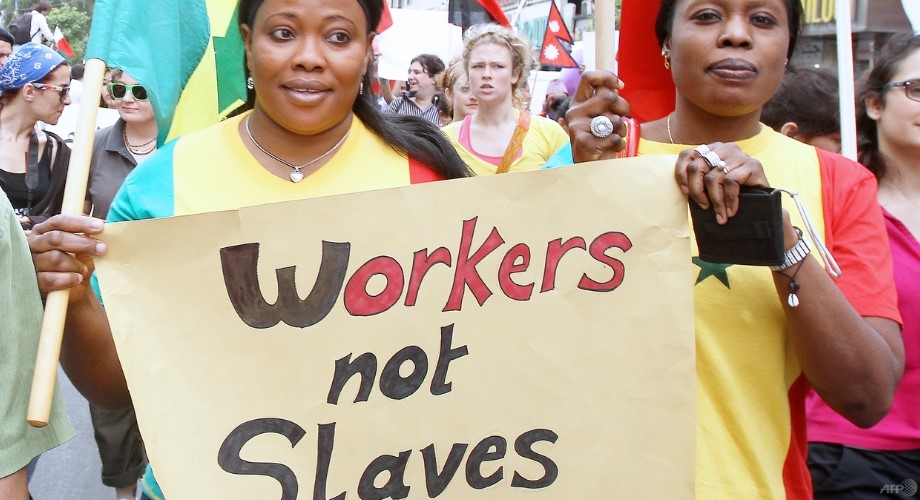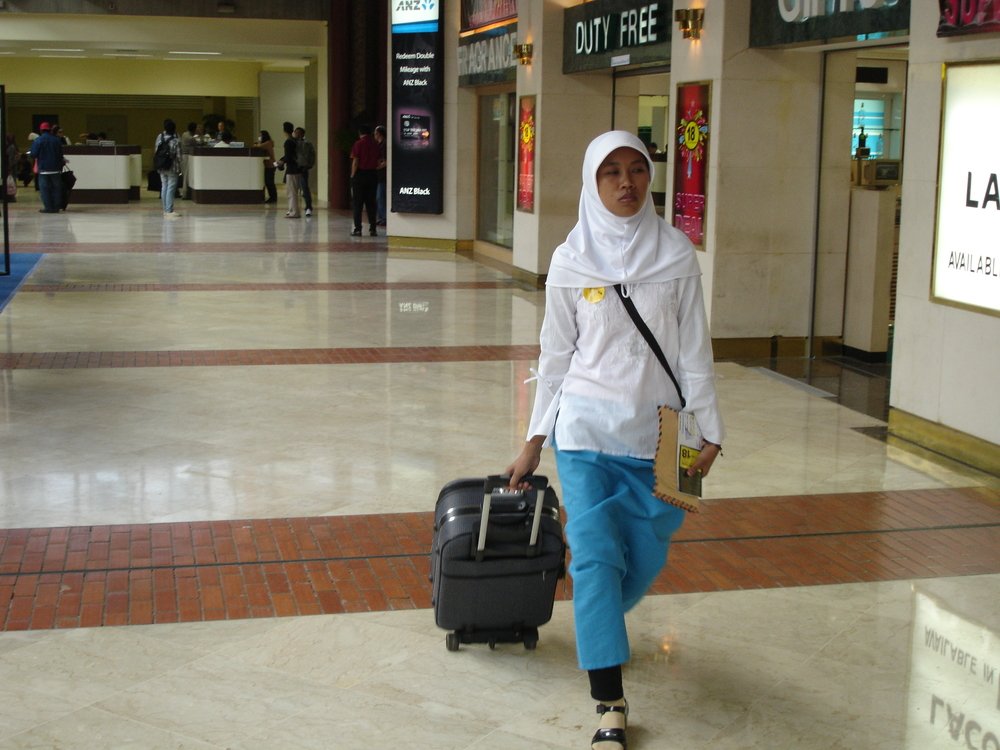
Siphokazi Mdlankomo, a domestic worker from Newlands, South Africa, is garnering international attention – and she’s using her new celebrity to call for the equal treatment of domestic workers. Mdlankomo debuted as a contestant on the popular show “MasterChef South Africa” last month and quickly became a fan favorite. The show’s contestants compete against each other in cooking challenges in the hopes of securing a future as a professional chef.
But becoming a chef is not Mdlankomo’s only goal. As noted in her biography for the show and reported last week, she also aims to use her time in the limelight to challenge global perceptions of domestic work and prove that domestic workers are not “second-class citizens.” “People, not only in South Africa, but all over the world should start taking domestic workers much more seriously,” she said. “People need to start thinking of domestic work as any other profession … it’s not just cleaning and cooking, there is far more talent in domestic workers.”
That Mdlankomo lives and works in South Africa is noteworthy. There are approximately 1.15 million domestic workers in the country. According to the International Labour Organization (ILO), more than three-quarters of domestic workers in South Africa are female, and their racial breakdown is highly imbalanced. Ninety-one percent of the country’s domestic workers are classified as “African/black” and the remaining nine percent are “Coloured.” Domestic worker employers, however, span all races.
In many ways, South Africa has been a leader in establishing legal protections for domestic workers. The country set requirements for minimum wages and formal employment contracts for domestic workers in 2002 and 2003, and it provides domestic workers with unemployment insurance, skills development opportunities and other resources. It was also one of the first countries to ratify the standards set by the ILO’s Domestic Workers Convention.
Despite these advances, abuse and exploitation of domestic workers is still an issue in the country. Some argue that this is due to a lack of enforcement of the laws. Wages remain low, 70 percent of domestic workers in the country work without a contract, and there are still reports of abuse, disrespect, segregation and racism. Researchers from the Community Agency for Social Enquiry found that many South African domestic workers think their employers view them as inferior and discriminate against them based on their race.
The recent actions of two South African university students exemplify the racism and objectification that still surround domestic work and the women who perform it. Soon after Mdlankomo’s debut, two white University of Pretoria students posted photos of themselves dressed up as domestic workers online, with their faces smeared with brown paint and pillows shoved in their skirts. The photos are a stark reminder of domestic worker stereotypes and the country’s racial history, and they make clear that legal protections do not generate social and cultural change overnight.
The university immediately condemned the students’ behavior, and there was much criticism from South Africans through social media. These reactions suggest awareness among South Africans that racism and ridiculing domestic workers are intolerable, at least in public – and therein lies a big part of the problem. Even though domestic worker employers might know that the mistreatment of domestic workers is socially unacceptable, they may not recognize more subtle forms of exploitation, and what happens in their own homes is ultimately private and hidden behind closed doors.
That’s what makes the reaction to Mdlankomo’s message, her popularity, and her efforts significant. Her presence on the hit show and commitment to using it as a platform to call for respect for domestic workers is helping to make domestic workers more visible to a popular audience. Scholars worldwide have well documented the legal, economic, physical and social forces that contribute to the invisibility and isolation of domestic workers. Pushing domestic workers’ stories, talents and struggles into the public sphere might help counter harmful and dangerous representations that appear all too common, even among a younger generation of university students.
As we noted previously, scholars have long studied media’s impact on public understanding and opinion. For this reason, groups like Migrant Rights have criticized the way media portrayals of domestic workers perpetuate degrading stereotypes that contribute to the mistreatment and abuse of workers. From this perspective, Mdlankomo and her message offer a positive alternative depiction.
News media coverage of Mdlankomo has so far framed her comments as “causing a stir,” “striking a nerve” and “heating up the black servants’ debate.” The fact that her common sense message is controversial and discomforting makes clear that it is necessary. Whether it will have a major impact remains to be seen. In the meantime, Mdlankomo is challenging South Africans’ understanding of domestic workers and confronting them with the need for equal treatment, and that has the potential to generate important and valuable conversations within households and beyond.
(Photo Credit: 702)


